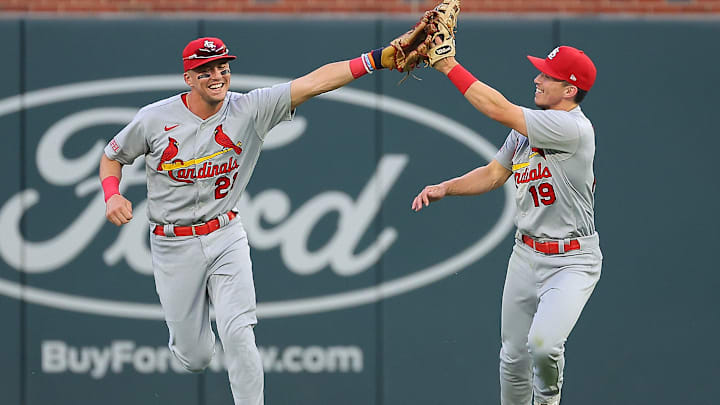Signing a long-term contract as a young player can be beneficial for both the player and the team. The player gets financial stability for many years, and the team is able to save some money while gaining contractual control of him for many years.
While the contracts to arbitration-eligible players typically aren't the equivalent of market value, they are a significantly greater amount than what a player would otherwise receive through the arbitration process. Players such as Fernando Tatis Jr., Ronald Acuna Jr., Spencer Strider, Corbin Carroll, and Michael Harris II all had remaining arbitration years bought out and were given long-term contracts.
The St. Louis Cardinals could take a similar approach this offseason with some of their talented arbitration-eligible players. While the team would have to pay more during the players' arbitration years, the long-term savings would be substantial. The hope is that these players continue to perform at a high level.
The hardest part with these contracts is figuring out how much money the players will get. It won't be fair market value (approximately $10-$12 million for every win above replacement); however, it will be a fair amount greater than the money they would get in arbitration. Fangraphs has Steamer projections for the next two seasons in fWAR. That is a fine place to start to value the contracts of the players.
For example, Corbin Carrol signed an 8-year, $111 million contract this past offseason before completing a full season in the majors. He had 3 years of pre-arbitration and 3 arbitration years remaining. The Diamondbacks bought out all 6 years and his first two years of free agency. He will not be a free agent until 2031. Carroll is projected to have 4.6 fWAR in 2024 and 4.9 fWAR in 2025. His contract breaks down to an average annual value of $13.875 million. Based on his WAR projections for the next two years, Carroll is being paid about $3 million per win above replacement. This is a fine place to start for contracts for Cardinals players, especially position players.
Even though the Cardinals have extended players in the past (Paul DeJong most notably) that have not worked out, that path should not scare them from repeating the process now. There are plenty of benefits for both the player and the team to extend a young player through his free agency years.
